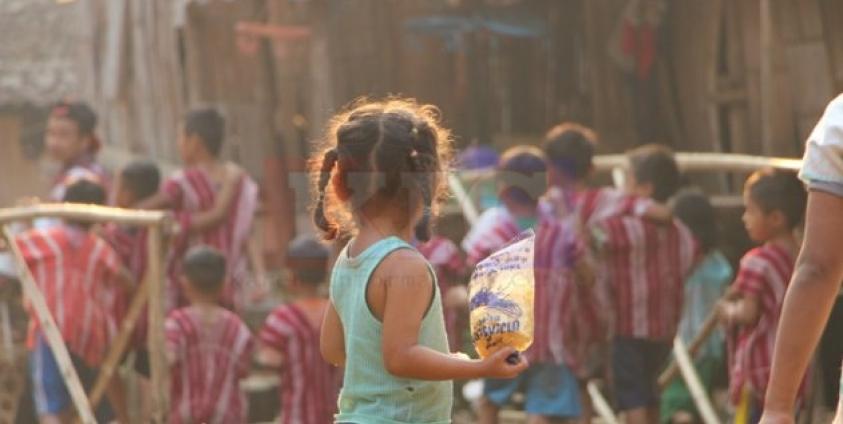With only rice to eat and no work opportunities to be had, families sheltering at the Ei Tu Hta Internally Displaced Persons Camp in Kayin (Karen) State are planning to return home.
Around 100 people are arranging an imminent departure. Leaders of the shelter, along with Karen social organizations and local authorities have put together a committee to help facilitate these villagers’ return, said Na K’nyaw Paw, general secretary of the Karen Women’s Organization (KWO).
“I heard that they are definitely set on returning home. The committee is meeting about their return,” she said. “As far as I know, there are around 50 households, constituting over 100 people [who intend to leave].”
All aid for the Ei Tu Hta shelter is expected to stop in September, she added.
At the moment, the nearly 3,000 IDPs staying at Ei Tu Hta receive only a rice subsidy. Each person under the age of 6 receives 6 kilos per month. Those above the age of 6 receive 12 kilos per month.
“Some of the IDPs won’t go back to their former villages but they will stay and work together with their friends from nearby areas. Some of the IDPs have already left under their own arrangements,” said one of the IDPs who asked not to be named.
Many of the shelter residents continue to be concerned about the Tatmadaw camps stationed along the roads from Hpapun township en route to their villages, and fear the danger of landmines once they return.
Ei Tu Hta IDP camp was opened in 2006 on a plot of land beside the Thanlwin River. The shelter was only ever intended as a temporary fix to house civilians needing refuge during fighting between the Karen National Union and the Tatmadaw. The KNU signed a bilateral ceasefire in 2012, and was among the eight signatories of the nationwide ceasefire agreement in 2015.
Following the ceasefires and return of relative stability in Kayin State, pressure has mounted on displaced villagers to return home, and funding for their shelters has dried up.
The Ei Tu Hta camp has faced medical supply shortages since last month, while IDPs say educational support has also declined.








